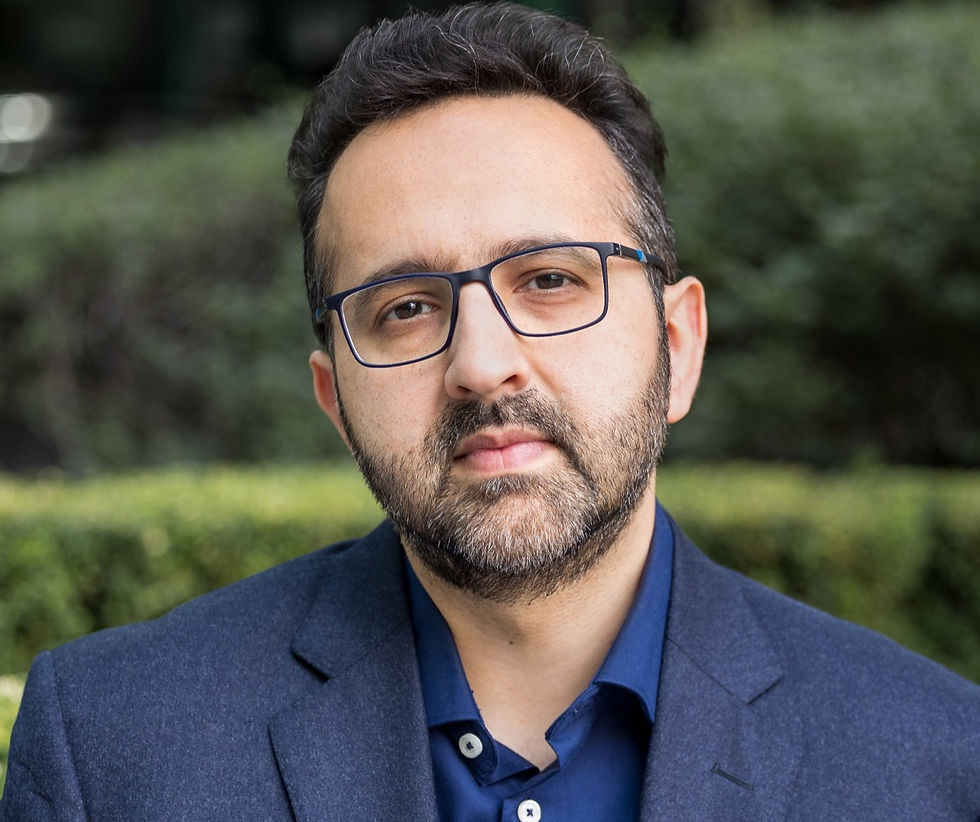Balancing vision and flexibility: A writer's journey from liminal spaces to publication
- Sheelagh Caygill

- Sep 25, 2025
- 3 min read

Nadia Ragbar's short fiction has appeared in Broken Pencil and This Magazine, among other outlets. Her flash fiction appeared in The Unpublished City, an anthology curated by Dionne Brand, which was shortlisted for the 2018 Toronto Book Award. She lives in Toronto with her partner and son. The Pugilist and the Sailor is her first novel and is published by Invisible Publishing. In this author interview, Nadia explores how as a writer balancing vision and flexibility are important, how a contest gave her motivation to complete her novel, and how she balances plotting and pantsing.
A writer balancing vision and flexibility
OCW: Can you trace any common themes across your writing?
NR: So far, the common theme across my short stories and my first novel is that my protagonists all exist in some liminal space—they’re feeling adrift, daydreaming their way to the next step forward. Which isn’t too far off the mark from where I was when I wrote those things.

OCW: Are you a plotter or a pantser?
NR: I’m a plotter who leaves room for pantsing. I like to have an idea of where I want my main characters’ arcs to start and end, but I have only the vaguest notion of how to get them there.
For this novel, I knew right away what I wanted the last line in the book to be, and I knew how I wanted it to feel. I plotted out some milestones to hit, I got surprised in the writing along the way (like characters I didn’t plan on, showed up), I got a lot of feedback, I tried Save the Cat. I like the direction that plotting gives me, and I love the inevitable delight that flying by the seat of my pants invites.
The ten-year journey: From thesis to first novel prize
OCW: If you’ve been published, how did you find your first publisher?
NR: The story of landing my first novel with Invisible Publishing is really special to me. The first draft of The Pugilist and the Sailor was completed as my Master’s thesis in 2013. I submitted that undercooked draft to three publishers (who rightly passed) and continued to workshop parts of it. And then ten years of life happened.
NR: In that time I was working on it only sporadically but it was always alive in my mind. Finally, in Jan. 2023 I realized I’d have so much regret at the end of my life if I didn’t try harder to do something with this story, so I vowed to implement a series of edits I wanted to make and shop it around to agents and publishers by the end of that year, with Invisible Publishing as my first choice. Two days after I made my solemn vow I came across the call for The First Novel Prize that Invisible Publishing was putting on with York University’s Book Publishing programme. I had a month until the deadline, I wrote like crazy, got it in on time, and won the contest. There’s really something about those solemn vows we make to ourselves.
Balancing creative vision with editorial collaboration
OCW: What advice/guidance would you give to writers?
NR: I think in writing it’s the same in life: to practice finding the balance between holding firm to your vision and knowing when to be flexible and open to someone else’s perspective.
In writing you practice finding this line in workshops and writing groups, when you are having your work critiqued and are similarly critiquing other people’s work. The collaboration of working with a series of editors at the publishing stage is extremely rewarding and illuminates the discernment you need to figure out when your vision is just you being stubborn, and when your vision does elucidate something fundamental about what you want to express.
OCW: Do you edit as you write, or write and edit later?
I definitely edit as I go—I’m raking through sentences and fiddling with words every time I open my Word doc. I can’t move on to the next scene until I feel I have an adequate shape to what I’ve written before, which makes me a pretty slow writer until I really get the world built up. I feel like a little mole tunneling through the dark, fussing with words and overwrought metaphors. And once my draft was accepted for publication I found it incredibly fun to work with a developmental editor. I really enjoyed making big organizational shifts that I couldn’t see when I was on my own and had tunnel vision. Editing at the end, as a collaborative effort, opened the story up and gave it more breathing room.



Comments